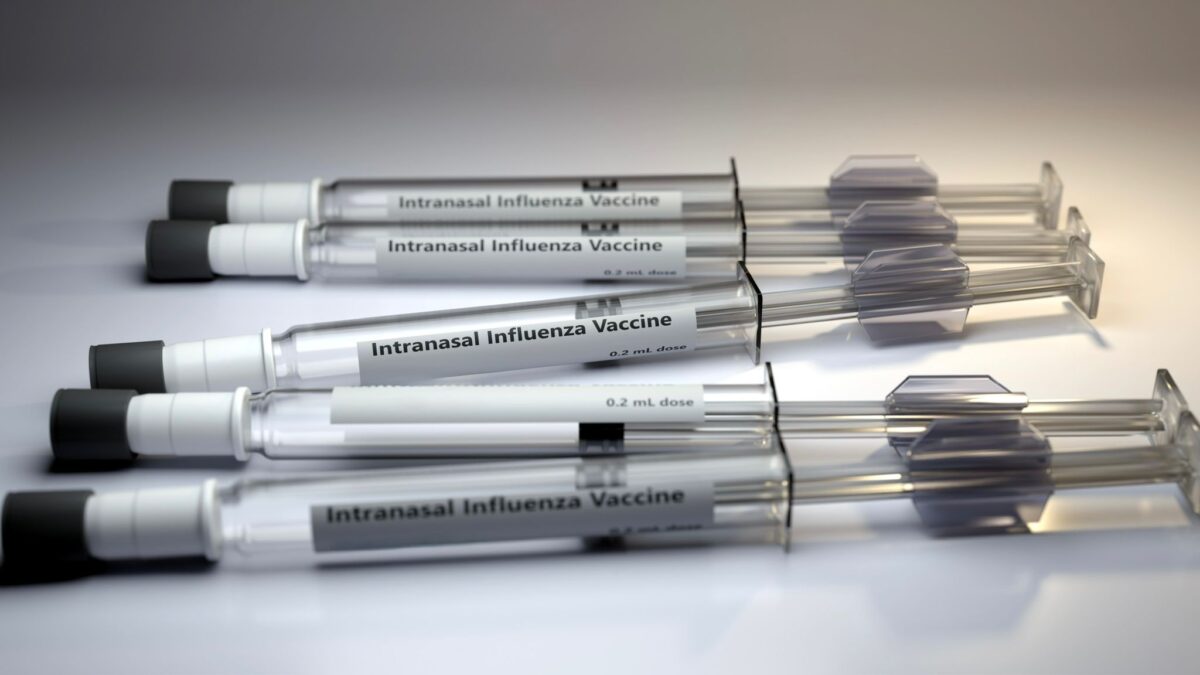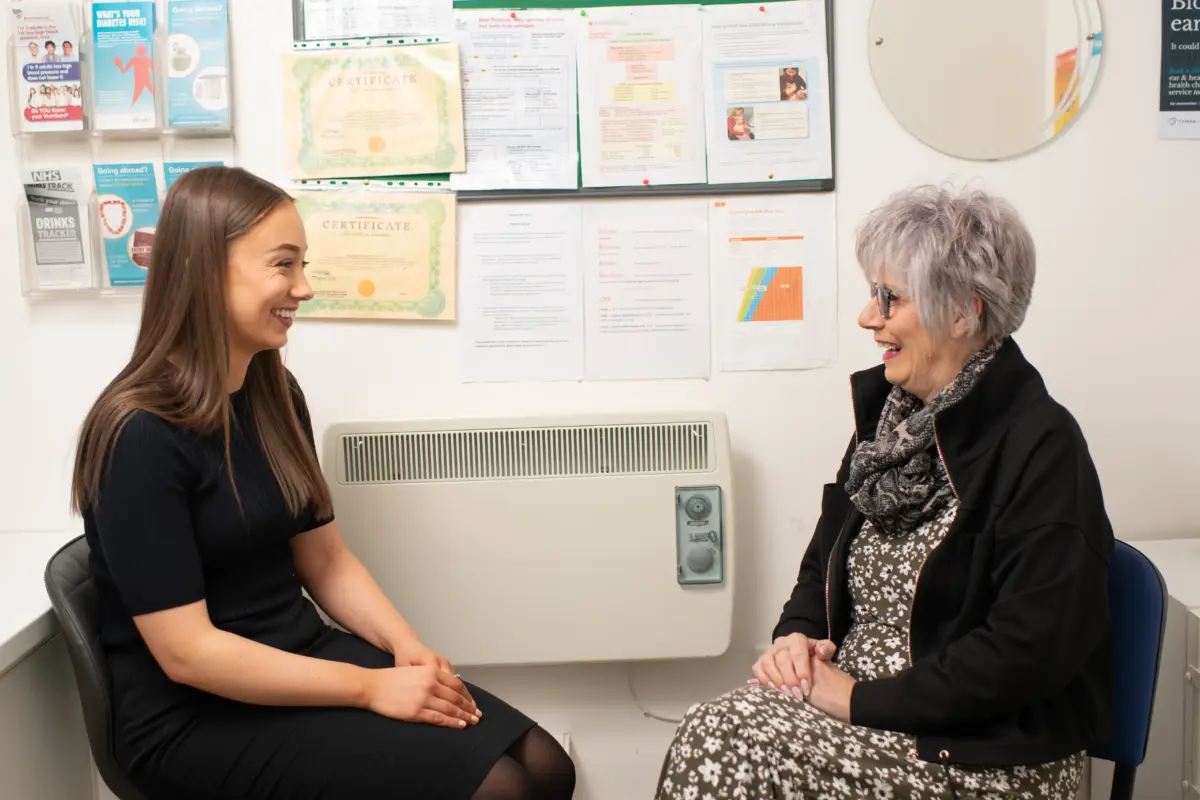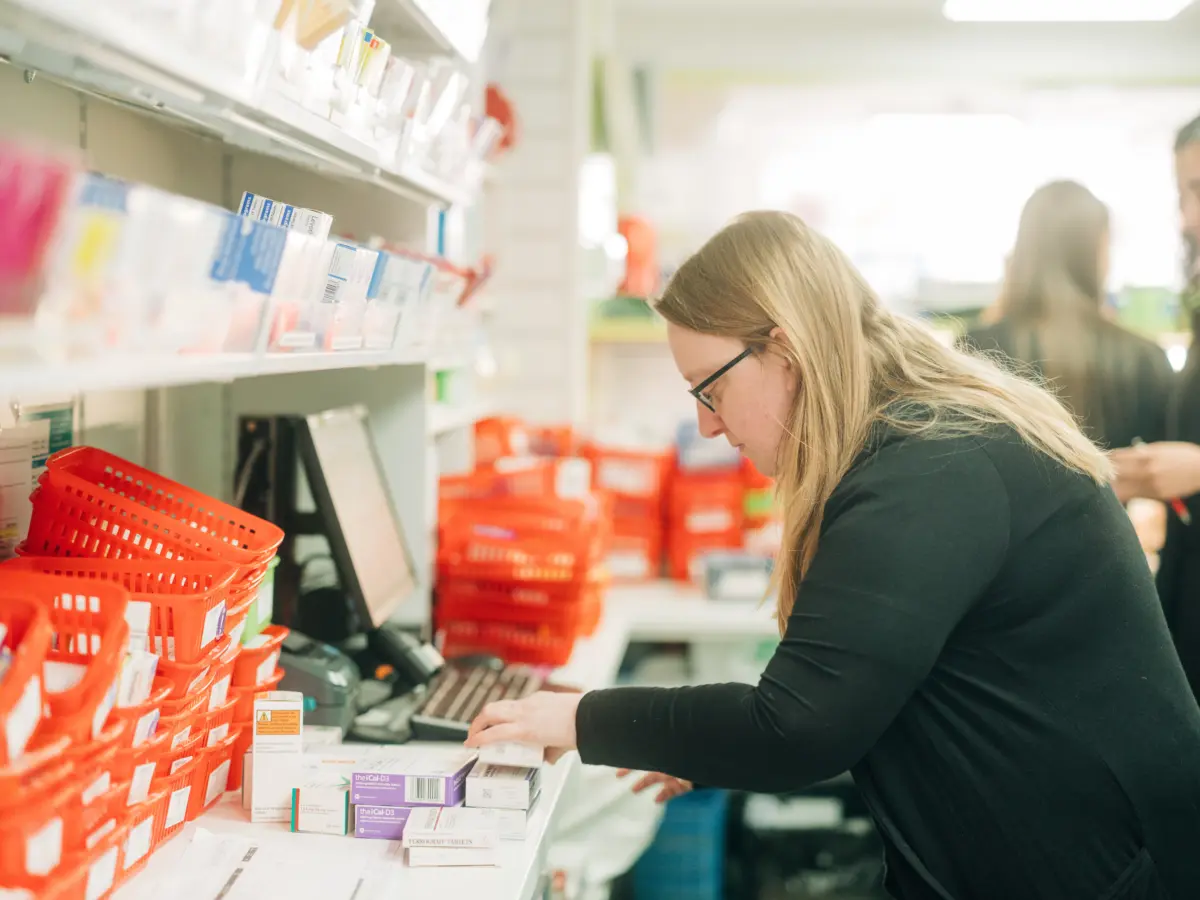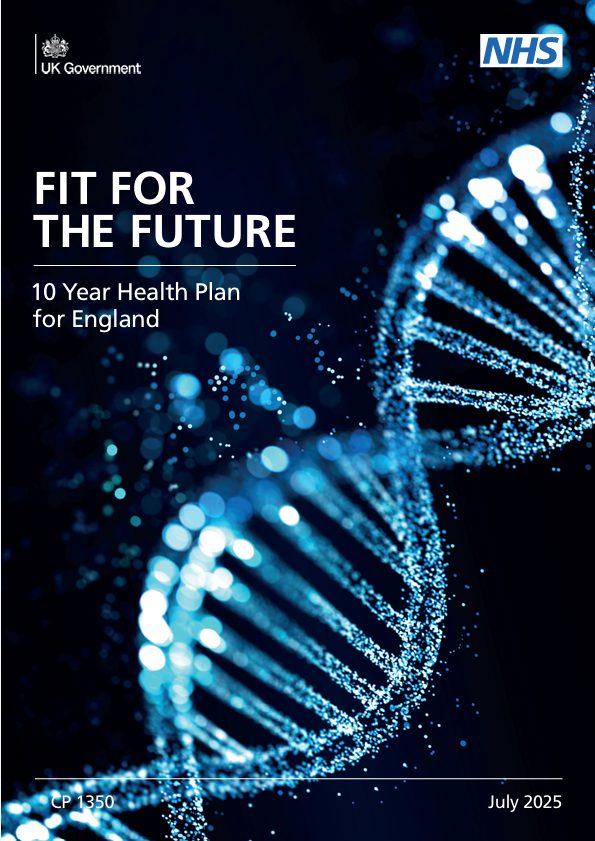Pharmacy First service – Myth busting
Published on: 14th November 2024 | Updated on: 29th May 2025
This page aims to tackle some of the misconceptions around Pharmacy First by myth busting.
Return to the main Pharmacy First webpage
Click on a heading below for more information
It is mandatory to complete the CPPE/NHS England Pharmacy First self assessment.
Wrong! Use of the framework is not a mandatory requirement, but pharmacists will need a method by which to assess their competence and identify any gaps in their learning; the self-assessment framework is designed to help them do that.
Patients who are electronically referred should be rejected if they can’t be contacted.
Wrong! If a patient is not contactable, then you are not able to claim for a consultation. However, the referral should be closed on the Pharmacy First IT system, noting the reason for this, rather than the referral being rejected.
Patients who are electronically referred who have symptoms of a more serious illness/red flags should be rejected.
Wrong! If having spoken to the patient, you suspect the patient does not have a minor illness, but instead has a more serious condition/red flags are identified, this is still classed as a minor illness consultation and should be treated as such, instead of being rejected.
Appropriate action should be agreed with the patient such as the pharmacist arranging an urgent appointment with the patient’s GP, GP out of hours provider or a referral to the emergency department/999.
If a patient has been verbally signposted instead of digitally referred, I can treat this as a referral.
Wrong! A referral within the NHS means one healthcare provider asks another healthcare provider to provide a service to a patient. As such, a referral requires a referral message to be sent from one provider to the other.
I must reject Urgent medicine supply referrals from NHS 111 if a patient’s GP practice is still open.
Wrong! Patients should be advised to contact the GP practice if this is practically the most appropriate option to obtain their medicine or appliance. This may not be possible if, for example, the patient is away from home and unable to access their GP practice or where the GP practice will not be able to issue a prescription in a timely manner, such that the patient can get that prescription dispensed in time for their next required dose of the medicine.
The pharmacist will need to assess each individual request and the circumstances of the patient to determine whether it is appropriate to make a supply via the Pharmacy First service.
Patients have been assessed by a clinician when a referral is made from NHS 111 for an urgent medicine/appliance to assess if it is clinically appropriate to make a supply.
Wrong! Most NHS 111 call advisors are not clinicians so they cannot assess the legality or clinical appropriateness of the emergency supply request. They are also not trained on the Human Medicines Regulations to determine what constitutes a valid emergency supply.
An NHS 111 call handler should advise patients when sending a referral that the pharmacist may decide to make a supply, however this will be at the professional discretion of the pharmacist.
Minor illness consultations are no longer a part of Pharmacy First.
Wrong! The minor illness strand of the Community Pharmacist Consultation Service (CPCS) remained when the service became Pharmacy First. Therefore, GPs can still refer patients for a minor illness consultation with a pharmacist, as was the case for CPCS.
GPs cannot electronically refer patients for minor illness consultations as part of Pharmacy First.
Wrong! The minor illness strand of the Community Pharmacist Consultation Service (CPCS) remained when the service became Pharmacy First. Therefore, GPs can still refer patients for a minor illness consultation with a pharmacist, as was the case for CPCS.
Patients with only certain minor illnesses can be electronically referred for the minor illness strand of Pharmacy First.
Wrong! While the service specification does include a list of minor illness symptom groups identified for referral to a community pharmacist for the minor illness strand of the service; it is important to note that this list is not exhaustive.
Therefore, if an electronic referral is received for a minor illness that is not included in the list, for example, a verruca or chickenpox, this is not a reason to reject the referral and these patients can be seen under the Minor illness strand of the service.
I can accept a Pharmacy First Minor illness electronic referral for a blood pressure check.
Wrong! A Pharmacy First Minor illness electronic referral should not result in the need for a blood pressure check.
If a patient has been incorrectly electronically referred for a blood pressure check, instead of a Minor illness consultation, the patient should be rejected detailing the reason.
If the patient meets the inclusion criteria for the Hypertension case-finding service or falls into the category of patients that has been agreed locally with the GP practice that referrals can be accepted for, another electronic referral is not required, and the patient can be offered the Hypertension case-finding service instead.
If the patient does not meet the inclusion criteria for the Hypertension case-finding service or does not fall into the category of patients that has been agreed locally with the GP practice that referrals can be accepted for, another electronic referral will be required from the GP practice, this time for the Hypertension case-finding service.
On all occasions, the GP practice should be contacted to explain why the patient has been rejected and explain instead that in future, patients should be referred for the Hypertension case-finding service if a blood pressure check is required.
It is also important to note that if the consultation is recorded as a Pharmacy First minor illness consultation, the GP Post Event Message (PEM) will go back to the GP patient record titled ‘Minor illness’. The IT system will not code the message correctly and any follow-on care, for example, if the patient’s blood pressure is high, may not get identified. Therefore, GP teams will not receive clinically significant consultation outcome information in the right way.
I have received a Pharmacy First Minor illness referral for a blood pressure check, so I can claim for a Pharmacy First Minor illness consultation and the Hypertension case-finding service.
Wrong! You cannot claim for the provision of both services. The patient should be rejected for the Pharmacy First Minor illness referral as explained above, and a claim should be made for only the Hypertension case-finding service, if this service is provided to the patient.
Patients who are electronically referred but do not meet the gateway criteria for the clinical pathway strand of the service should be rejected.
Wrong! If a patient is electronically referred for a clinical pathway condition but does not meet the eligibility criteria, they can instead be seen under the minor illness strand of the service.
For example, if a patient is electronically referred for earache but is an adult, they would not be eligible for the acute otitis media clinical pathway, but the pharmacist could provide the minor illness strand of the service for this patient.
It is acceptable for me to add a patient’s clinical record to the Pharmacy First IT system a week after I had the consultation with the patient.
Wrong! The requirements within the service specifications for the national community pharmacy clinical services expect pharmacy owners to adhere to defined standards of record keeping, ensuring that pharmacy professionals are making consultation records on the same day of service provision unless exceptional circumstances apply.
Making contemporaneous records at the time of the consultation is the expectation of pharmacy professionals providing services. This not only meets expected professional standards, but it also supports timely provision of data to the patient’s general practice, which will also become available to view by other pharmacy professionals providing a consultation to the patient, should they need to seek further support in due course.
In addition, the IT system suppliers have designed their consultation records to support the provision of the service and clinical decision making, for example, by linking to the Summary Care Record, blood pressure guide, etc. Therefore, pharmacy professionals are encouraged to use their IT system during the provision of services to ensure they have access to this clinical decision-making support.
I must complete a consultation record on my Pharmacy First IT system if the patient has walked in (self-referred) for the Pharmacy First service and does not pass Gateway.
Wrong! There is no requirement to make an entry on the Pharmacy First IT system if the patient has walked in (self-referred) for the Pharmacy First service and does not pass Gateway. However, pharmacists may choose to make a clinical record of advice provided under the Support for self care Essential service.
Trainee pharmacists can provide the Pharmacy First service.
Wrong! Only a pharmacist can provide the service. However, with the consent of the patient, a trainee pharmacist could participate in the consultation to support their learning and development. For example, they could be involved in the discussion with the patient or examining them. A pharmacist would need to be present in the consultation to provide support and direct clinical supervision of the trainee pharmacist. That pharmacist would be responsible for the provision of the service and would retain professional responsibility for the care of the patient, including where necessary, making the decision on the supply of any medicine as an emergency supply or under one of the PGDs for the clinical pathways.
It is fine to always select ‘other’ and free type the outcome of the consultation in the Pharmacy First IT system, rather than select the most appropriate outcome from the list of options.
Wrong! Pharmacists should be selecting the most appropriate outcome from the list provided within the Pharmacy First IT system and only free typing text on the very rare occasion that the outcome does not fit into one of the outcome options.
NHS England uses the outcome data to demonstrate the benefits of the Pharmacy First service; if entries are free typed, this limits their ability to showcase this.
Here are some examples of free-typed outcomes and the correct option from the list in the IT system which should have been selected:
| Example of free text | Drop down option |
| Referred to GP | Urgent escalation to another service |
| Benzydamine / Difflam spray sold OTC | Sale of an Over-the-Counter (OTC) medicine |
| Sale of an OTC item + advice | Sale of an OTC medicine (there is an assumption that all OTC sales will include the provision of advice) |
| Earwax build-up | Non-urgent signposting to another service |
| Return in a couple of days | Advice given |
| Self-care advice given | Advice given |
The ‘other’ option when selecting an outcome of a consultation should be used to record additional information about the consultation.
Wrong! If you wish to add further detailed information about the consultation or outcome, Pharmacy First IT systems offer an additional field to record this information.
If I receive a message that my Pharmacy First IT system cannot send an automated message to the patient’s GP practice following the patient’s Pharmacy First consultation, no further action is required.
Wrong! It is a service requirement that a notification of the provision of the service is sent to the patient’s general practice on the day of provision or on the following working day.
If the notification cannot be sent via the Pharmacy First IT system, the notification should be sent via NHSmail or hard copy.
Recording the referring organisation’s ODS code, for example, the GP practice’s ODS code on the Pharmacy First IT system is not really that important and it is fine to skip or use the ‘default’ dummy code.
Wrong! Accurate completion of this field is important for reporting and service implementation. This information also helps demonstrate the contribution of community pharmacies towards patient care through Pharmacy First and the additional benefits being created for patients and the NHS.
Most systems include an ODS look-up functionality to support with this and some IT suppliers can also pull the information from the Personal Demographics Service (PDS) look-up functionality.
This information is usually included in the referral information. Pharmacists are also able to search for ODS codes using the organisation search functionality in the ODS portal.
Amending or deleting a consultation after marking it as complete will delete the message that has been sent to the patient’s GP practice.
Wrong! Deleting a consultation after marking it as complete will not delete the post event message (notification) that has been sent to the patient’s GP practice. In this situation, it is important that the GP practice is contacted and informed of this and a request is made that the patient’s record be updated.
If an amendment is made to a consultation after the notification has been sent to the patient’s GP practice, you should confirm with your Pharmacy First IT supplier what action is required to ensure the patient’s GP clinical record is updated.
I can deliver all the seven clinical pathway consultations by live video link.
Wrong! The acute otitis media clinical pathway cannot be provided by live video link as it requires otoscopic examination of the patient’s ear. Therefore this clinical pathway must be provided as a face-to-face consultation (which means Distance Selling Pharmacies cannot provide this clinical pathway).
Under the urgent supply of repeat medicines strand of Pharmacy First, I can supply a reasonable quantity that is clinically appropriate and that lasts until the patient is able to see a prescriber to obtain a further supply of codeine tablets.
Wrong! Codeine containing products (including co-codamol) are Schedule 5 Controlled Drugs. Therefore legislation limits the supply to five days for Controlled Drugs. This restriction also applies to other Schedule 4 and 5 Controlled Drugs such as dihydrocodeine and testosterone.
Codeine and related products are medicines that can be subject to abuse; pharmacists should always access the patient’s national care record or their GP record via GP Connect Access Record functionality and check for previous supplies. If the patient refuses to provide consent to view their clinical record, consideration should be given as to whether it is clinically appropriate to make a supply.
If I receive an Urgent medicines referral for a medicine liable to misuse, it is always ok to make a supply under Pharmacy First because I have received an electronic referral for this medicine.
Wrong! It is for the pharmacist to determine if a supply is appropriate, not the person who issued the referral. Pharmacists should check if the Integrated Care Board has issued guidelines to local GP OOH services on the supply of medicines liable to misuse. This information should ideally be included in the pharmacy’s SOP for the service.
The supplying pharmacist needs to balance the potential for misuse versus the need and the impact on the patient of not supplying a medicine or appliance. A limited supply of one or two days could be considered if appropriate, to allow the patient time to access their GP practice.
If I receive an Urgent medicines referral for a Controlled Drug which cannot be supplied under emergency supply regulations (e.g. Schedule 1, 2 or 3 Controlled Drug), I cannot claim payment for a Pharmacy First consultation.
Wrong! If it is not possible to make an emergency supply but the pharmacist believes that there is a genuine patient need to obtain a supply of their medicine, the pharmacist must ensure the patient is able to speak to another appropriate healthcare professional by either:
- Referring the patient to their own general practice; or
- By contacting a local out of hours provider.
An entry should be made in the Pharmacy First IT system and a consultation fee can be claimed in this instance.
Remote Pharmacy First consultations can be provided by a pharmacist who is not present on the pharmacy premises.
Wrong! Any pharmacist providing the service must be at the pharmacy premises when providing a remote consultation to a patient.
I can supply a patient with an OTC medicine as part of a minor illness consultation.
Wrong! The outcome of referrals received in relation to low acuity conditions / minor illness may include giving self-care advice and support, the sale of OTC medicines, referral to locally commissioned pharmacy services, referral to the patient’s GP or relevant GP OOH service, or general signposting to other appropriate services (including other health professionals). Therefore, patients may have to purchase an OTC medicine if no locally commissioned minor ailments service exists.
All men are eligible for a urinary tract infection clinical pathway consultation.
Wrong! Based on recommendations from the NICE Quality Standards, the UTI clinical pathway is for cisgender women, non-binary people registered female at birth and transgender men (with no structural alteration to their urethra), aged 16 to 64 with an uncomplicated UTI.
Cisgender men, non-binary people registered male at birth and transgender women (including those who have had structural alteration to their urethra) should be referred to their GPs for management. This is because they are more likely to have a complicated UTI and are excluded under the Patient Group Direction.
The Patient Group Directions will be amended in due course to clarify inclusion/exclusion criteria and to include a glossary of terms from Stonewall.
An 18 year old is eligible for an acute otitis media clinical pathway consultation.
Wrong! The clinical pathway for acute otitis media pathway states that this is for children aged 1 to 17 years. Therefore anyone 18 years and above is excluded from the clinical pathway.
A 65 year old woman is eligible for an uncomplicated urinary tract infection clinical pathway consultation.
Wrong! The clinical pathway for uncomplicated urinary tract infection states that this is for women aged 16 to 64 years. Therefore, anyone aged 65 years or over is excluded from the clinical pathway.
I can provide clinical pathway consultations remotely via telephone.
Wrong! Where it is clinically appropriate to do so, minor illness consultations (referrals) and urgent medicines supply consultations (referrals) can be undertaken via telephone/audio or video consultation by a pharmacist who is on the pharmacy premises.
Similarly, where it is safe to do so, clinical pathways consultations can be conducted via good quality video consultation by a pharmacist who is on the pharmacy premises. However, remote clinical pathways consultations can only be provided via a good quality video consultation – they cannot be provided by a telephone/audio consultation.
I can rely on my Pharmacy First IT system to highlight if the patient is excluded from the clinical pathway/Patient Group Direction and I therefore know when I should not make a supply.
Wrong! The Pharmacy First IT systems do not currently highlight if the patient does not meet the clinical pathway or PGD requirements, for example, if their age or sex excludes them.
Pharmacists must be familiar with the clinical pathways and PGDs when providing the service to ensure they are not providing an illegal supply to a patient outside of the clinical pathway/PGD requirements.
I have completed a Clinical pathway consultation with a patient and they have passed the Gateway point. I have referred the patient to another local pharmacy as I do not the medicine that the patient needs in stock. I can claim a consultation fee for this.
Wrong! If the pharmacist has had to refer the patient to another pharmacy to obtain their medicine from a Clinical pathway consultation, the referring pharmacy cannot claim a consultation fee for this. This applies if the patient is a walk-in patient (self-refers) or is electronically referred to the service.
I can choose the appropriate quantity to supply to a patient when providing them with a medicine under a clinical pathway consultation.
Wrong! The Patient Group Direction (PGD) for the medicine that is being supplied states the dosing instructions and duration of treatment. Therefore, pharmacists should consult the relevant PGD to calculate the amount of medicine that should be supplied.
I can use my professional discretion to make a supply to a patient who does not meet the inclusion criteria for one of the PGDs.
Wrong! The clinical pathways and PGDs cannot be deviated from; they must be followed when deciding if it is appropriate or not to supply a medicine to a patient under the Clinical pathway strand of the service. The PGD provides the legal basis for the provision of the medicine; professional discretion cannot be used to make a supply of a POM outside the provisions of the PGD.
Distance selling pharmacies can provide acute otitis media clinical pathway consultations.
Wrong! Distance selling pharmacies (DSPs) are excluded from providing the acute otitis media clinical pathway as it requires otoscope examination of the patient’s ear and DSPs can only provide clinical pathways consultations via a good quality video consultation (not face-to-face) conducted by a pharmacist who is at the pharmacy premises.
Distance selling pharmacies can provide face-to-face consultations for clinical pathway consultations.
Wrong! Distance selling pharmacies (DSPs) can only provide clinical pathways consultations via a good quality video consultation, conducted by a pharmacist who is at the pharmacy premises.
They cannot provide this type of consultation with the patient being present at the pharmacy premises because the first part of any discussions with a patient relating to the clinical pathways consultations, prior to the Gateway point in the clinical pathway being passed, is part of the Support for the Self Care Essential service. DSPs cannot provide Essential services at their pharmacy premises.
For more information on this topic please email services.team@cpe.org.uk











